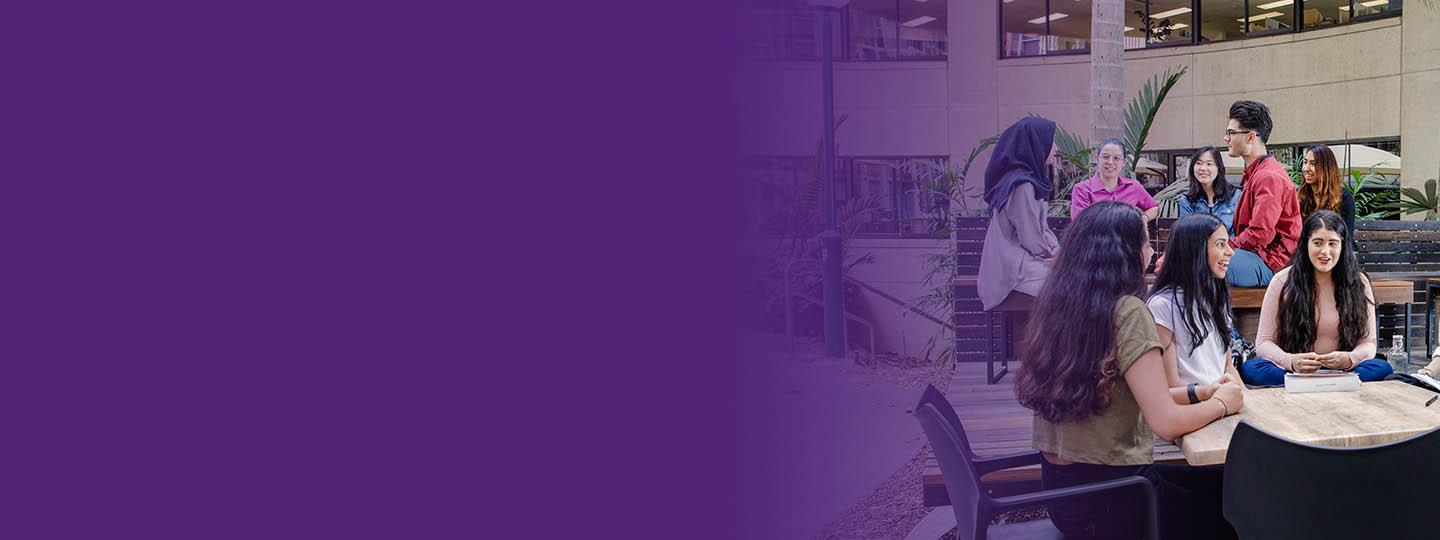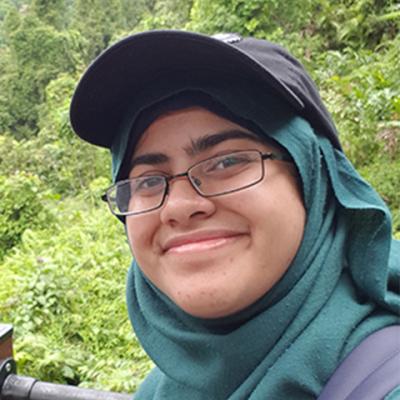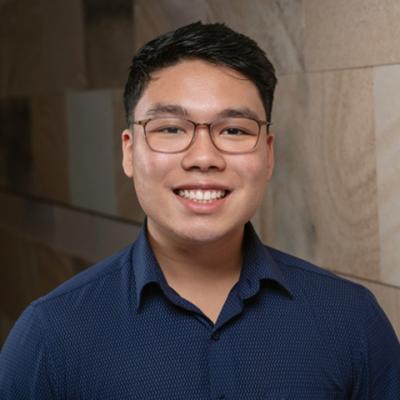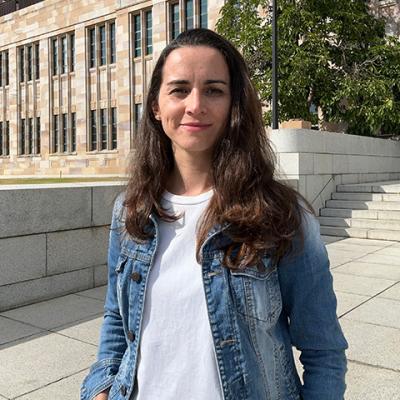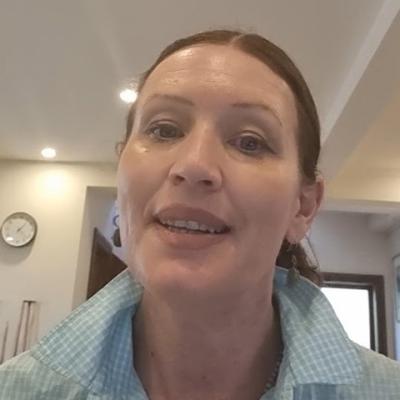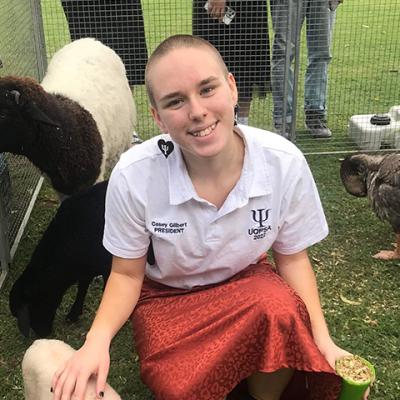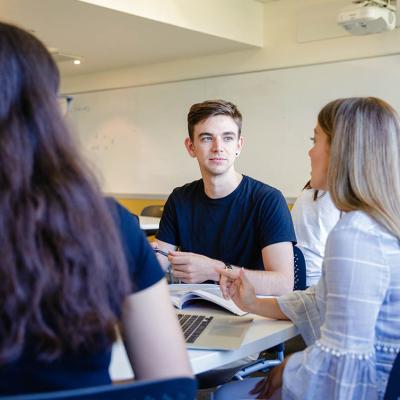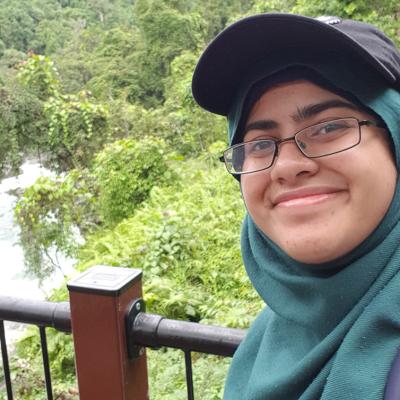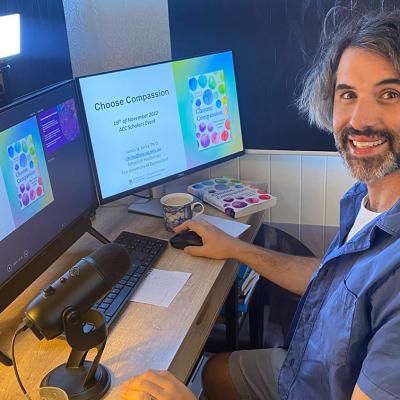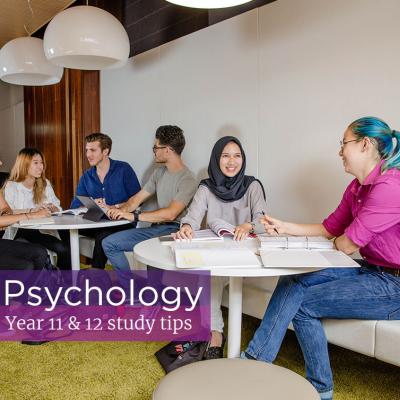Curious about what it's like to study psychology at university?
We spoke with some current psychology students and recent graduates to get their unique perspectives. Their stories are here to help you decide if studying psychology is right for you.
The 5 students and alumni featured here all studied a Bachelor of Psychological Science (Honours) or a Bachelor of Arts (Honours) (Psychology).
What would you like to know about studying psychology?
- Why did you choose to study psychology?
- What does a day in the life of a psychology student look like?
- What are the most valuable skills you’ve learnt while studying psychology?
- What have you learnt about yourself since you began to study psychology?
- How hard is studying psychology?
- What's one of the most valuable aspects of studying psychology at UQ?
- What do you want to do in your psychology career?
- What advice do you have for people interested in studying psychology?
Why did you choose to study psychology?
Casey: Ever since I was a kid, I've been curious about the brain and behaviour, especially because I have an identical twin sister. It's amazing how alike we are, yet we still have our own distinct personalities. However, my true interest in studying psychology ignited when my grandmother was diagnosed with dementia. The last years of her life were a scary and confusing time for my family. This experience motivated me to pursue a career as a clinical neuropsychologist. I aim to assist families facing similar challenges by identifying cognitive concerns early and providing psychological support throughout disease progression.
Felicity: During my fourth pregnancy, I found myself intrigued by the psychology of fostering healthy relationships and the science behind human brain development. This curiosity, driven by personal reasons, seamlessly merged with my passion to make a difference in the broader community. Drawing from my own lived experience with an eating disorder, I also aspired to make a meaningful impact on the journey of those recovering from similar challenges.
Brian: Before university, I struggled with uncertainty about what I wanted to do in the future. In the process of elimination, I ruled out what I didn't want to study and explored programs I wouldn’t mind studying. I enjoy learning about different psychology topics in my spare time, so I decided psychology could be a good fit for me. I applied and got a letter of acceptance for psychology at UQ! I guess I was lucky, as I ended up really liking what I’m studying!
Camila: I was lucky to have access to psychotherapy interventions as a teenager. I found it incredible how interpersonal relationships and our patterns of thoughts and behaviours influence our emotions and overall health. Later, as a primary school teacher, I became interested in social and cognitive development in childhood. I observed how children’s development was tightly linked to the environmental conditions they lived in. This made me realise that psychology can transform lives in many ways, and I wanted to be part of it.
Erfa: I’ve encountered a lot of people with mental health issues in my life, and I wanted to go into a field where I could be someone capable of helping those people. I also just love everything about psychology! Learning about how and why people act the way they do, how to improve myself, and how to help others… it’s all been fascinating and great to learn.
What does a day in the life of a psychology student look like?
Brian: A typical day for me starts with attempting to wake up for lectures and tutorials. Following classes, I often hang out with friends or engage in campus volunteering. Some days I may go to the library to do research or access other helpful resources on campus available to help students learn. I've also taken advantage of counselling services and other services UQ offers to its students. My day typically spans from 8am to 6pm.
Felicity: Each day brings a different experience. I think understanding the experiences of each year helps explain the evolving nature of studying psychology at UQ:
- In the first year, you get introduced to the basics of psychology, providing a glimpse into the various fields of study.
- Moving into the second year, things become more academic, with in-depth assignments and the opportunity to start streaming towards an area of interest.
- As you enter the third year, the academic intensity increases, and you start specialising in a specific field, preparing for either graduation or pursuing honours. During the third year, I particularly enjoyed the opportunity to engage hands-on in subjects like neuroanatomy and visual neuroscience coding for experiments.
- Fourth year is the most intense, where I opted for an individual project. I collected data in the visual neuroscience lab with EEG recording in the first semester and then analysed and wrote a research paper in the second semester. This year emphasises independent study, providing a clear sense of direction as you approach the end of your degree.
Camila: Some days involve on-campus lectures and tutorials, while others offer flexibility. Depending on the course, we have a different combination of weekly assessments and major assignments, including essays, reports, group presentations, quizzes, and exams. Each course generally comprises a 2-hour lecture, assigned readings, and a tutorial every week. So, really, no two days are ever quite the same.
What are the most valuable skills you’ve learnt while studying psychology?
Brian: Writing and searching skills. Much of the undergraduate program involves writing essays to demonstrate what you have learned. As I progress through the course, my writing skills and searching (database/online) skills have significantly improved.
Felicity: Time management, leadership, and to believe in myself. And there are so many academic skills I’ve learnt including knowledge of research methodology, psychological concepts, technical ability, and academic writing and research.
Camila: I’ve improved my critical thinking, reasoning, writing, and communication skills in many domains. This set of skills is extremely valuable since I can apply them beyond the scope of psychology. I also learnt how to value diversity of ideas and make the most of it. Being a good listener and keeping an open-minded approach is a valuable skill that promotes the never-ending construction of psychological knowledge.
Erfa: I would say the most valuable skill I’ve learned is interpreting studies – how words can be misleading, how to tell a study was conducted well and had meaningful findings. This skill is extremely valuable, because now I can investigate topics beyond psychology and interpret findings. I think critical thinking is one of the most valuable skills one can have, and I’m grateful to practise it in my classes.
What have you learnt about yourself since you began to study psychology at UQ?
Casey: While studying psychology, I've discovered that I'm truly passionate about helping people feel at ease with the field. Learning about therapy, assessment and research has shown me that creating a comfortable environment for those interacting with psychologists and researchers is something I naturally value.
Brian: I’ve learnt that I’m interested in academia and research, which was a stark contrast to my original goal of being an industrial and organisational psychologist.
Felicity: I’ve learnt that I have amazing time management skills. Juggling responsibilities, including overseeing a household of 6, engaging in volunteer roles, and working part time, has been an insightful journey. I’ve also learnt that I can achieve great things by studying psychology, that not only affect me personally, but also make a positive impact in the community.
Camila: I've discovered the power of reflecting on my own thought patterns and emotional state, and using it to enhance my wellbeing and relationships. Studying psychology has also given me the skills to be an active and compassionate listener, along with the skill of assertive communication. The personal growth I've undergone not only benefits my personal relationships but also lays the groundwork for my professional journey.
How hard is studying psychology?
Casey: I think there's a stereotype that psychology is an 'easy degree', but I believe this is wholly inaccurate. It involves a significant amount of time dedicated to learning complex statistical techniques and research methods. Graduates are expected to excel in critical thinking and evaluation, skills that require considerable time and effort to develop. Additionally, there's an emotional and mental aspect to consider; the content of psychology courses can be challenging, adding to the overall difficulty of the degree.
Erfa: Psychology is more science-oriented than people realise, involving a significant focus on statistics. If you're comfortable with statistics, the field may not be too challenging. However, if writing reports and using statistical programs seem daunting, pursuing psychology might be difficult. Personally, I find writing reports the most challenging aspect, struggling to motivate myself to start and dedicate time to planning and writing.
Despite these challenges, I enjoy the course content and its practical applications. In psychology, we often apply techniques to ourselves that we later recommend to others, which has been very beneficial.
What’s one of the most valuable aspects of studying psychology at UQ?
Brian: UQ, as a world-class research university, holds significant value for anyone interested in a career in research and academia. My teachers have instilled in me ethical research practices that I'll apply in my future research endeavours.
Felicity: The culture of excellence at UQ is truly inspiring, and being part of a program where leaders strive for excellence is contagious. The teachers are your rock, and they generously share their expertise and are delightful to interact with. The tutors are equally inspiring, happily sharing insights from their journeys that serve as valuable touchpoints along the way.
Camila: The professors and lecturers have so much knowledge, and I am grateful for the opportunity to learn from such a high-quality team. Over the last 3 years, I approached many professors and lecturers who went above and beyond to provide useful advice for my academic life and career. We have access to a wide range of publications and databases at the library, including the digital catalogue. The physical environment is excellent, offering sound-proof booths at the library for concentrated learning and a beautiful, vibrant outdoor area to recharge. There's always a spot that caters to my specific needs.
Where do you want to go or what do you want to do in your psychology career?
Casey: I want to do a Master of Clinical Neuropsychology, but first I’m taking some time after graduation to build on my practical skills. I’ll be working as a research assistant at the UQ Neuropsychology Research Clinic, and I’ll also continue working in my role as a receptionist at a psychology practice. I’m then taking time off to do some backpacking around Europe.
Brian: Back to university! I want to pursue research and academia after graduating.
Felicity: I aspire to pursue a PhD in psychology, focusing on visual perception. With both motivation and capability, alongside my involvement in clinical peer work, I aim to address the community's need to alleviate distress in individuals recovering from eating disorders. My lived experience adds a unique dimension to my profile as a researcher with first-hand understanding.
Camila: I aim to progress my studies to become a registered psychologist via applying for postgraduate programs that lead to registration. My goal is to work with interventions that improve individuals' mental health and foster positive interpersonal and intergroup relations. I believe the preventative potential that psychology-based interventions offer is one of the critical factors that can improve the population's overall wellbeing in future years.
What advice do you have for people interested in studying psychology?
Casey: If possible, don’t listen to the opinions of others when it comes to deciding your university pathway. I was originally afraid to study an arts degree, because of societal stereotypes that it’s an 'easy' or 'useless' program to complete. But studying this degree was the best decision I could have made. I enjoyed almost all my courses, had an incredible time participating in faculty-related student societies, and achieved a high level of academic performance.
Brian: Go for it and enjoy yourself! The Bachelor of Psychological Sciences (Honours) program provides time and opportunities for you to discover which part of psychology you enjoy. Your interests may change over time, and that is okay!
Felicity: I would advise others to study psychology where there is an interest in human-to-human connection and a desire to learn about the way humans think. Go in with an open mind and see what grabs you. There are so many options; there is literally something for everyone.
Camila: Reach out to professionals in your field of interest to help identify the best pathway and program for you. Once you've enrolled in your preferred program, it's essential to start off on the right foot. Familiarise yourself with the course structure and deadlines. Establish a consistent study schedule that fits well with your lifestyle. Additionally, prioritise your wellbeing by maintaining a regular sleep schedule, scheduling meals, engaging in physical activity, and carving out time for leisure activities. While studying psychology is a fascinating journey, maintaining good health is crucial for making the most of this experience.
Erfa: Be aware of your limits and make sure to work with them instead of pushing yourself to get over them. Sometimes the content matter can be upsetting. Sometimes the assignments are long. Sometimes the statistics are complicated. Not every psychology skill you learn is something you will be able to utilise for yourself, and that’s okay too.
Ready to start your own adventure in studying psychology? We can't wait to see where it leads you.
Explore UQ's Bachelor of Psychological Science (Honours) Explore UQ's Bachelor of Arts (Honours)

